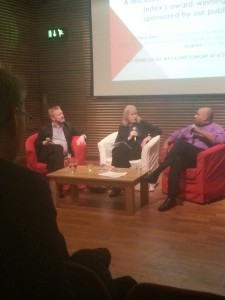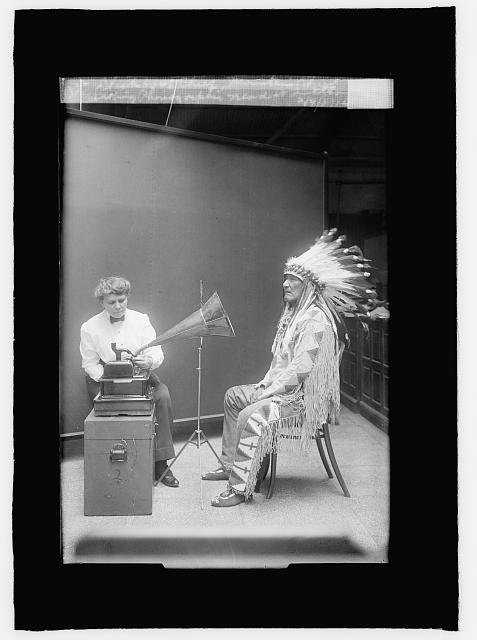Tess Woodcraft writes: Gus Hosein of Privacy International and Richard Allan, policy director at Facebook went head to head at the launch of Index on Censorship’s new magazine ‘Digital Frontiers’ this week. Index on Censorship calls itself ‘the voice of free expression’ and the debate was intended to explore the tension between privacy and free speech on the Web. Most of us who passionately believe in free speech, would also place huge value on privacy – but it can be a difficult circle to square in the age of the internet.
Richard was clear, the internet has ‘democratised the voice’, mainly because of the low cost of getting your voice and views out there, and said that some of the proposals around privacy could be seen as the ‘criminalisation of speech’. But Gus said privacy has now become the titanic struggle around the internet – with Europe valuing privacy, and the US declaring that free expression is paramount.
There are no simple answers. Take, for example, the issue of anonymity. Gus argued that anonymity is an important principal for the internet – and most of us would probably agree. The ability of corporations and governments to track our every move is a frightening prospect. Governments are enthusiastically (and secretly) capturing the data generated by internet users about themselves (and it’s not just repressive regimes – the police in the UK undertake social media monitoring, and have refused to answer FOI requests for information on what or how they monitor). But Richard Allan pointed out that anonymity is not always a good thing. It is important for Facebook users to be honest about who they are, after all people are sharing their personal data, they need to feel confident that you are who you say you are.

Richard Allan and Gus Hosein, chaired by Kirsty Hughes, CE of Index
Talking about the Arab Spring, and the way secret services in Egypt were monitoring social media, Gus said Facebook should push more privacy options onto people who may not know they are at risk. It is not enough to give them ‘the level of protection a Californian teenager wants’.
The ill directed rage and bad faith of some internet users worried both men. ‘Ethically we suck, everyone is throwing a lot of hate around on the internet right now’, as Gus Hosein put it. And Richard Allan agreed, describing how trolls go to great lengths – creating new Facebook accounts, for example – to trash a Facebook page set up to commemorate someone who has died. But how to solve the problem without draconian legislation that limits free speech? As Richard said, sometimes a solution can be worse than the problem it sets out to solve. He felt the solution had to lie with Facebook itself, and said ‘It’s like a hotel – we have to create a reasonable environment, however difficult the guests can be, and only call the police when things get totally out of hand’. Unsurprisingly, he didn’t favour more legislation, but said governments were increasingly looking to legislate as more and more people were on the internet, using ever more sophisticated encryption. But for Gus this was tantamount to the privatisation of censorship.
It’s not just Facebook that presents these issues, of course. Twitter users often think tweeting is like having a conversation in the pub – but they need to be aware it is a private conversation in a very public space. What’s more Twitter data is now sold to a company who resells it to private companies and even governments – who can see a single tweet that started a revolution.
At Pod Academy, we are committed to freedom of expression, but we also value privacy. It is not an easy one. What do you think? Let us know.




Subscribe with…